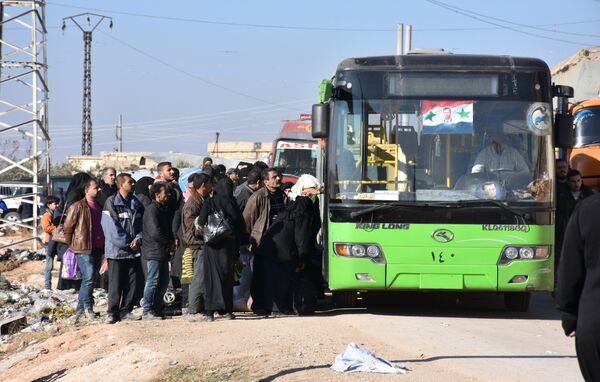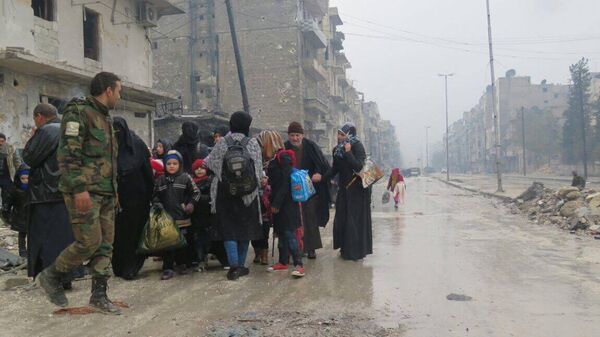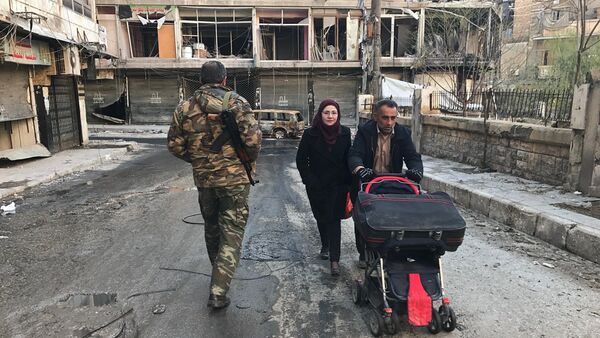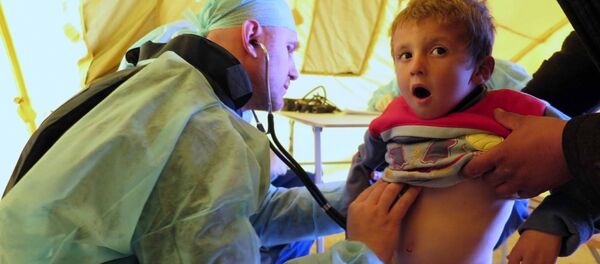On Wednesday, the Turkish Foreign Ministry announced that about 37,500 people had been evacuated from eastern Aleppo, with buses taking them to camps in opposition-controlled areas and to Turkey following a deal negotiated with Damascus, Moscow and Tehran. Many of the evacuees are thought to be opposition fighters and their families, but other civilians are also assumed to be in the mix.
French journalist and political writer Thierry Meyssan described this phenomenon in a recent article for Syrian online newspaper al-Watan. According to the journalist, a significant minority of the city's non-militant affiliated residents are suffering from what he has dubbed the 'East Aleppo Syndrome', a localization of the well-known psychological condition known as Stockholm Syndrome.
"Strangely," Meyssan wrote, "although the state is offering them food, health care and temporary housing, some residents of these neighborhoods continue to say that 'they do not trust the state.'"
"What are they afraid of?" he asked, adding that "they have not been arrested, and are, on the contrary, being welcomed as citizens who have long been held captive by the enemy."

"It's as if they have forgotten the freedom enjoyed prior to the 'Arab Spring'. As if nothing had happened over the last four years, they recite the discourse broadcast by Al-Jazeera in 2011 that the Syrian Republic is not only a dictatorship, but that it tortures children, massacres Sunnis, etc."
In fact, the journalist explained, what is now being witnessed in Syria "at the level of [an entire] city, is a psychological phenomenon that is well-known at the individual level. Just as a beaten child or wife will sometimes justify the actions of a cruel father or husband, so too are some inhabitants of eastern Aleppo now using the language of the jihadists who had oppressed them."
Meyssan pointed to the work of clinical psychologist Saverio Tomasella, whose 2015 study on the subject for a medical journal revealed that Stockholm Syndrome is "the mark of an extremely serious invasion of the inner life of the person who has directly and helplessly experienced the theft of his or her subjective identity."
Accordingly, writing to his Syrian audience, Meyssan stressed that "we should therefore not believe that those inhabitants of eastern Aleppo who are suffering from the ravages of syndrome will quickly be able to reconnect with the real world."

Instead, "they must be provided with total security and be shown great patience. Even though the duty of the state is to first provide assistance to the soldiers and all those who defended the nation, these civilians, the residents of eastern Aleppo, are also Syrians," and must be treated as compatriots, the journalist concluded.




